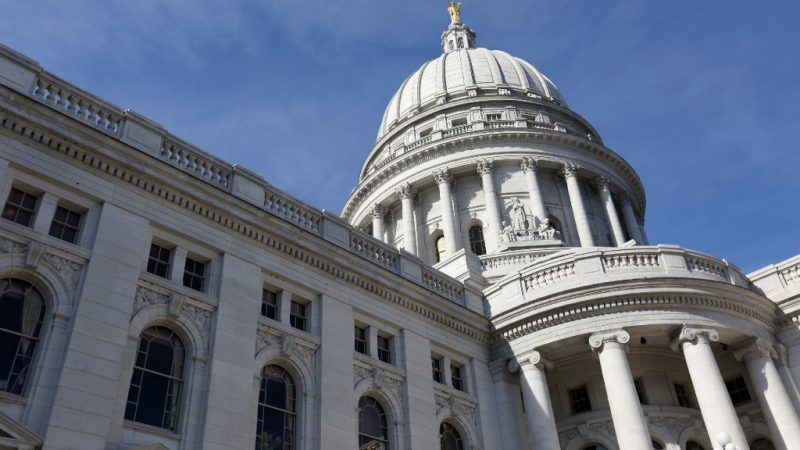Wisconsin’s civil statute of limitations for child sexual abuse cases would be eliminated and clergy would be required to report allegations of sexual or physical assault against a child, under legislation from Dem lawmakers.
Flanked by survivors of sexual assault by clergy, Sen. Lena Taylor of Milwaukee and Reps. Chris Taylor and Melissa Sargent of Madison rolled out measures Wednesday they say are needed to address stumbling blocks that survivors of childhood sexual abuse can encounter while seeking justice later in life.
Under current law, the statute of limitations to bring allegations of child sexual abuse expires when the survivor reaches the age of 35. Additionally, while clergy are already required to report suspicions, the statute provides an exemption if the knowledge of the abuse is obtained through pastoral communications or circumstances.
In an emotional statement, Sen. Taylor described her own experience as a survivor of child sexual abuse. The Milwaukee Dem said it wasn’t until she was 27 years old and in law school that she remembered the incident.
>> WisPolitics is now on the State Affairs network. Get custom keyword notifications, bill tracking and all WisPolitics content. Get the app or access via desktop.
“We know that people need time to come forward, time to process the trauma of what has happened to them,” she said. “We know that sometimes it can take 30 to 40 years to come to terms with sexual abuse.”
The elimination of the civil statute of limitations, Sen. Taylor said, would give survivors the tools and support they need to overcome “the countless obstacles on their path to recovery.”
But the legislation faces an uphill battle in the Legislature. Despite counting current Assembly Speaker Robin Vos, R-Rochester, Senate President Roger Roth, R-Appleton, and JFC Co-Chairs Rep. John Nygren, R-Marinette, and Sen. Alberta Darling, R-River Hills, among the bill’s initial co-sponsors when it was introduced in 2007, it has consistently failed to gain traction among GOP lawmakers in the years since. The measure hasn’t received a committee hearing since 2009 despite being introduced in every session since 2007, with the exception of the most recent one.
The bill’s backers blame opposition from faith-based organizations such as the Wisconsin Catholic Conference, Wisconsin Family Action and the Archdiocese of Milwaukee. All three have consistently lobbied against the bill since its inception.
The Archdiocese of Milwaukee referred WisPolitics.com to the Wisconsin Catholic Conference for comment. That organization’s executive director, Kim Vercauteren, said it opposed the measure because of a three-year window that would be opened to allow those who were barred by the current statute of limitation to retroactively bring legal action.
“We feel that this legislation is designed more in a punitive fashion to seek out a means through which to litigate old cases against current non-profit entities, and that lacks an element of fairness,” she said.
Wisconsin Family Action President Julaine Appling told WisPolitics.com her organization’s opposition to the proposal came down to her belief that the measure was designed to go “after an institution where the person who allegedly did this is no longer there.”
“This isn’t about putting someone behind bars. This is about money,” she said.
Both Vercauteren and Appling said they would be open to a bill that would raise or even eliminate the statute of limitations if it did not include the three-year window to seek retroactive legal action.
Sen. Taylor indicated at the news conference that she was open to negotiating the bill’s finer details to boost its chance of passage, and a Taylor spokesman told WisPolitics.com she would be willing to compromise on the three-year retroactive period.
Spokesmen for Vos and Senate Majority Leader Scott Fitzgerald were not immediately available for comment.
See the most recent version of the bill:
http://docs.legis.wisconsin.gov/2015/related/proposals/sb262



